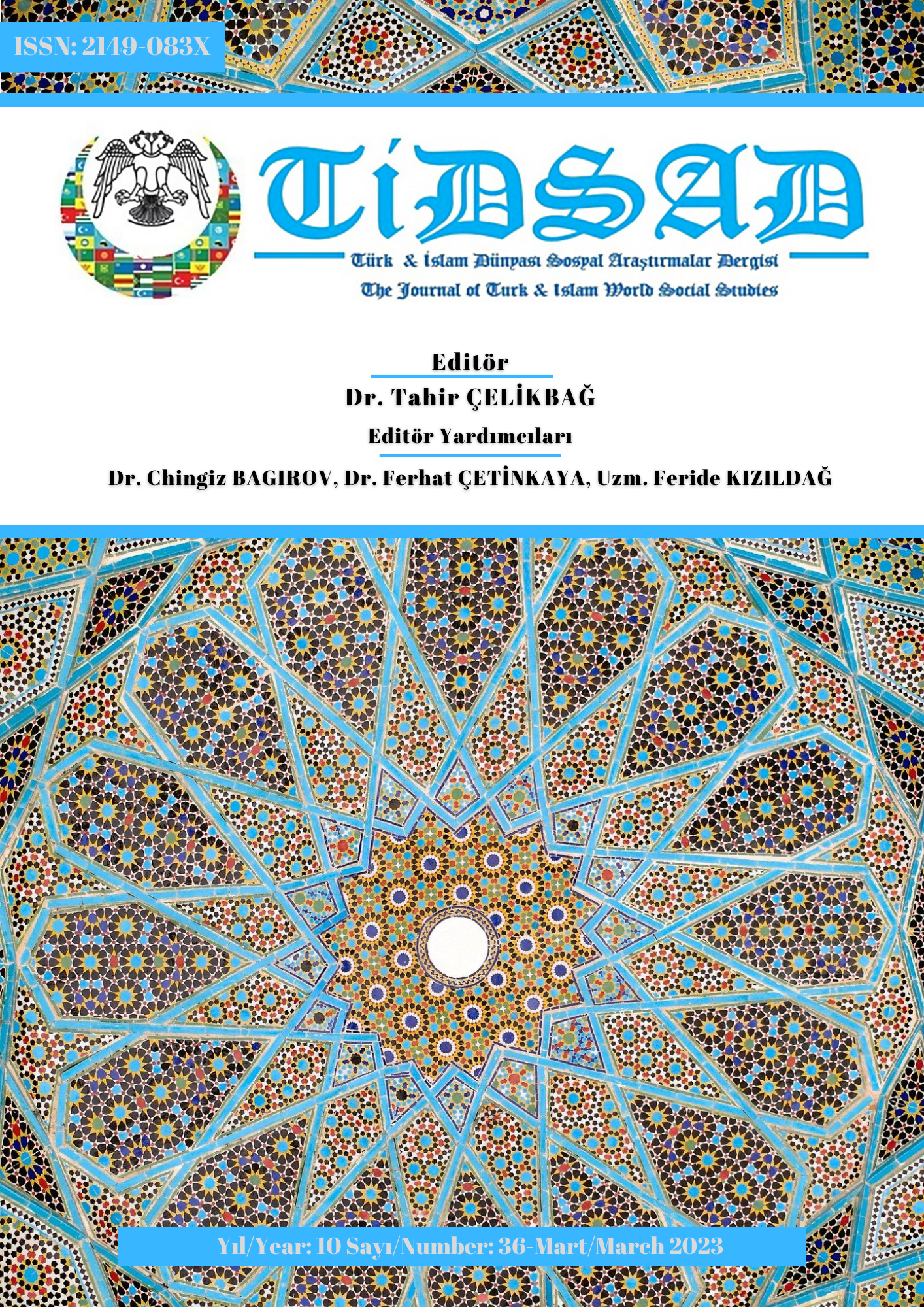Amerikan Eski Kurumsal İktisat Okulunun Ana Akım İktisat Düşüncesine Karşı Sürdürdüğü Eleştirel Yaklaşım
Author :
Abstract
- yüzyılın sonlarında gerçekleşen yöntemler savaşı sonucunda sosyoloji ve iktisat bilimi ayrılmıştır. Neoklasik iktisadın yükselmeye başladığı 20. yüzyılın başlarında Amerika’da Eski Kurumsal İktisat Okulu bulunmaktadır. Amerikan Eski Kurumsal İktisat Okulunun en önemli üyeleri arasında Thortein Veblen, Wesley Mitchell, John R. Commons ve John K. Galbraith bulunmaktadır Eski Kurumsal iktisatçılar Neoklasik iktisat teorisinden daha farklı bir iktisat teorisi geliştirmeye çalışmışlardır. Bu nedenle psikoloji, tarih, sosyoloji gibi sosyal bilim dallarından yararlanmışlardır. Ancak, Eski Kurumsal İktisat Okulu yöntemler savaşında Neoklasik Okula yenilmiştir. Yöntemler Savaşını kazanan Neoklasik İktisat Okulu iktisat biliminin kontrolünü eline geçirmiştir. Çalışmada tek bir iktisat bilimi olduğu (Klasik ve Neoklasik Okullar), ancak her ülkenin farklı kültürel ve tarihsel koşulları bulunduğu belirtilmektedir. Kültür, kurumlar, ahlak ve tarih önemli değişkenlerdir ve ekonomilerin izlediği yolu etkilerler. İktisat araştırmalarına ihmal edilen sosyal unsurların dahil edilmesi gerekmektedir. Bu bağlamda küresel ekonomide farklı kapitalizm modelleri olduğu fark edilmektedir. Küresel ekonomide ülkeler arasında kurumsal, kültürel, etik ve tarihsel varyasyonlar olduğu görülmektedir. Bu çalışmada modern ekonomi biliminin do-ğuşu ve Amerikan Eski Kurumsal İktisat Okulunun ana akımı temsil eden Neoklasik İktisat Okuluna karşı sürdürdüğü eleştirel yaklaşım anlatılmaktadır. Çalışmanın son kısmında, küresel politika paradigmalarının Türkiye ekonomisi üzerindeki etkilerine, ve konuyla ilişkisi bakımından Türkiye’nin ilk Weberyen iktisatçısı olan Sabri Ülgener’in din-ekonomi ilişkisiyle ilgili saptamalarına birlikte değinilmektedir.
Keywords
Abstract
With the “war of methods” which took place at the end of the 19th century, sociology and economics were separated. At the beginning of the 20th century, when Neoclassical School began to rise, the Old Institutional School in America was confronting Neoclassical School. Among the most important members of the Old American Institutional School were Thortein Veblen, Wesley Mitchell, John R. Com-mons and John K. Galbraith. Old Institutional economists tried to develop a different economic theory from Neoclassical economic theory. In order to build a new econo-mic theory, they used various branches of social sciences such as psychology, history and sociology. However, the Old Institutional School was defeated by the Neoclassi-cal School with the war of methods. Having won the war of methods, the Neoclassi-cal School took the control of economics science. In this study, it is concluded that there is only one economics composed of Classical and Neoclassical Schools. However each country has diverse cultural and historical conditions. Culture, reli-gion, ethics, history and institutions are important variables and they influence the path of capitalism. Therefore, in the global economy various models of capitalism exist. In the global economy there are institutional, cultural, ethical and historical variations among countries. Those omitted infuential social variables should be ad-ded to the economic researches. At this study, the birth of modern economics and the criticims of Old Institutional School to mainstream economis is briefly explained. Besides at the last part, the infuences of global policy paradigms on Turkish economy and, the distinguished Weberian economist Sabri Ülgener’s remarks about religion-economy nexus is explained simultaneously.





